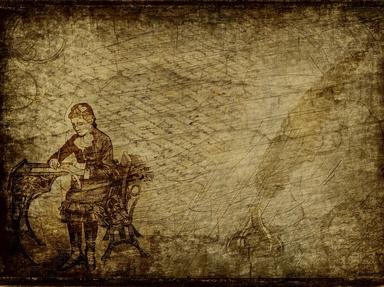
By Order: Thomas Hardy Trivia Quiz
Thomas Hardy wrote fourteen novels in total, before turning to poetry. Put the ten I've picked in order by the date of publication.
An ordering quiz
by rossian.
Estimated time: 3 mins.

| What's the Correct Order? | Choices |
| 1. (1871 (Cytherea)) | The Trumpet-Major |
| 2. (1872 (Fancy)) | A Pair of Blue Eyes |
| 3. (1873 (Elfride)) | Far From the Madding Crowd |
| 4. (1874 (Fanny)) | The Woodlanders |
| 5. (1878 (Thomasin)) | The Return of the Native |
| 6. (1880 (Anne)) | Jude the Obscure |
| 7. (1886 (Lucetta)) | Tess of the d'Urbervilles |
| 8. (1887 (Grace)) | Under the Greenwood Tree |
| 9. (1891 (Liza-Lu)) | Desperate Remedies |
| 10. (1895 (Arabella)) | The Mayor of Casterbridge |